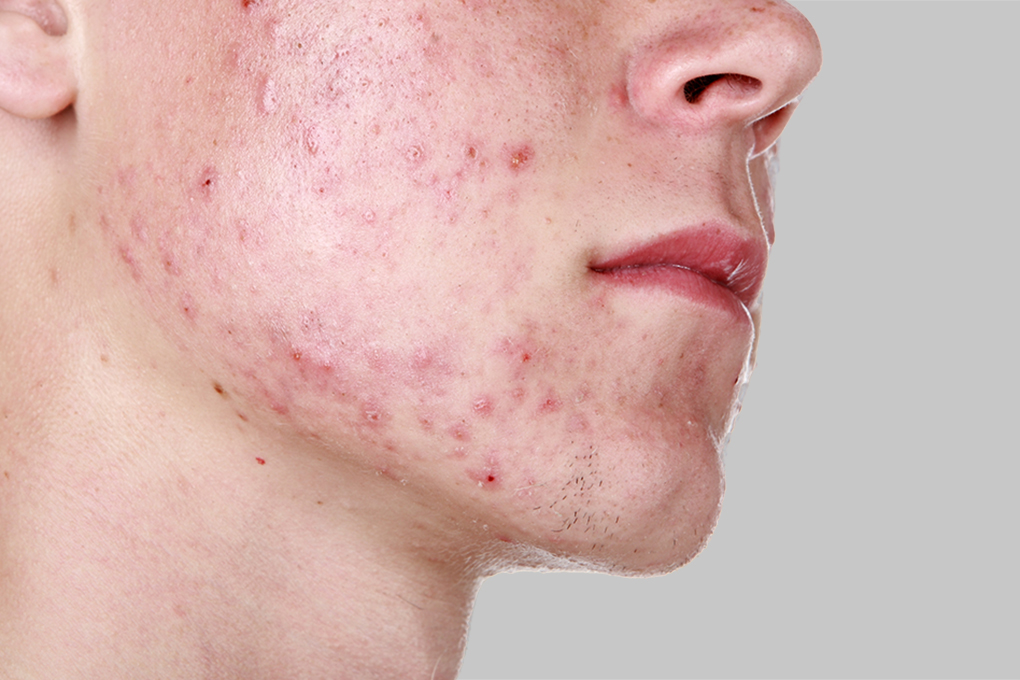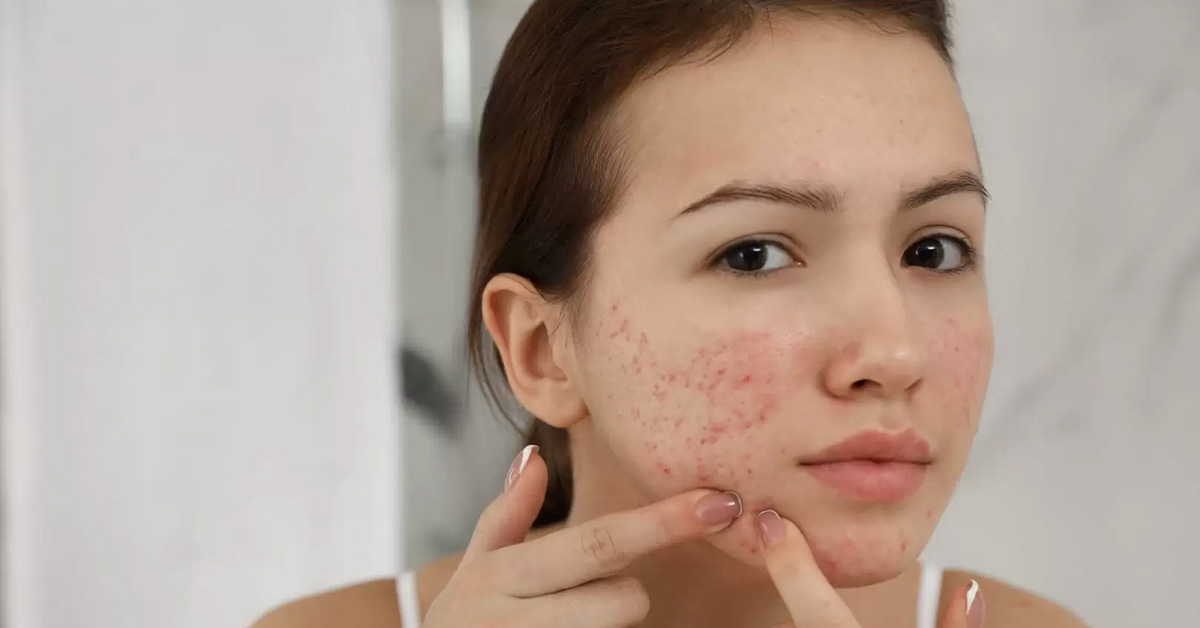Acne Treatment Breakthroughs - Revolutionary Solutions For Clearer Skin
Acne treatment breakthroughs have revolutionized the management of acne vulgaris, a prevalent skin condition characterized by clogged pores leading to the formation of blackheads, whiteheads, and various types of pimples.
Author:James PierceReviewer:Karan EmeryFeb 21, 2024463 Shares51.4K Views

Acne treatment breakthroughshave revolutionized the management of acne vulgaris, a prevalent skin condition characterized by clogged pores leading to the formation of blackheads, whiteheads, and various types of pimples. These acne treatment breakthroughs target the underlying causes of acne, offering innovative solutions to alleviate symptoms and promote clearer skin.
Pimples, which are often painful and filled with pus, can be effectively treated using these advancements in dermatological care, leading to improved outcomes and enhanced quality of life for individuals affected by acne.
Topical Retinoids
Topical retinoids, which are made from vitamin A, are one of the most important parts of treating acne. They work amazingly well at reducing comedones, inflammatory lesions, and the general severity of acne.
These medicines work by restoring normal skin cell turnover in hair follicles. This stops new acne lesions from forming and speeds up the turnover of current ones. New improvements in retinoid preparations have made them more stable and tolerable, which means they don't cause as much irritation as older versions of these drugs did.
Topical retinoids are a constant in dermatologists' arsenal because they have been shown to help with many aspects of acne, such as hyperkeratinization, inflammation, and microbial proliferation. They give patients a reliable way to get clearer, healthier skin.
Combination Therapies
When it comes to treating acne, combination therapies are a multifaceted method that uses different types of treatment to focus on different parts of the problem at the same time. On top of that, dermatologists often mix topical antibiotics, retinoids, and benzoyl peroxide to treat both comedone and inflammatory acne spots.
Oral medicines like isotretinoin, antibiotics, and hormonal agents may be added to the treatment plan for cases that are serious or don't respond to other treatments. Also, treatments like chemical peels, microdermabrasion, and laser therapy can help oral and topical ones by exfoliating better, reducing inflammation, and killing germs that cause acne.
Combination therapies work better at treating acne because they use more than one type of treatment at the same time. This makes the treatments more effective while reducing side effects and giving patients clearer, healthier skin.
Microbiome-Targeted Therapies
Microbiome-targeted medicines are a new way to treat acne that focuses on balancing the little living things on your skin. Researchers have found that changes in the skin's microbiota can make acne worse by encouraging inflammation and the growth of bacteria that cause acne.
Some of these treatments are probiotics, prebiotics, and topical mixtures with good bacteria or byproducts of bacteria that help restore microbial balance and stop the spread of pathogens that cause acne. By going after the underlying dysbiosis of the skin microbiome, these treatments show promise for getting rid of acne at its source, which could lead to safer and more long-lasting long-term answers.
Anti-Inflammatory Agents
An important part of treating acne is using anti-inflammatory drugs, which work on the inflammation that causes the condition. There are many things that can cause acne, but inflammation makes it worse and makes spots last longer. New developments in anti-inflammatory treatments have led to the creation of medicines like interleukin inhibitors and other immune-modulating drugs that target the inflammatory pathways that play a role in the development of acne.
The goal of these treatments is to lessen the redness, swelling, and pain of acne spots and stop new ones from appearing. Because they target inflammation at its source, anti-inflammatory agents are a useful addition to acne treatments that help patients feel better and get clearer, healthier skin.
Hormonal Therapies
In the fight against acne, hormonal therapies are a big step forward, especially when hormonal issues cause the acne in the first place. Because of changes in hormones, acne is often linked to youth.
However, it can last into adulthood, especially in women, because of polycystic ovary syndrome (PCOS) or hormonal birth control. Oral contraceptives that contain estrogen and anti-androgen drugs like spironolactone are examples of hormonal treatments.
They work by controlling hormone levels, which lowers sebum production and hormonal acne lesions. It is possible to effectively treat acne in people whose condition is affected by hormonal factors with these therapies, which can help relieve symptoms and improve general skin health.
Light And Laser Therapies
Recently, light and laser therapies have become new ways to treat acne that don't involve surgery and are good for people who want to avoid taking standard medications. Different types of light, like blue light and intense pulsed light (IPL), are used in these treatments to kill germs that cause acne, reduce swelling, and help the skin heal.
Photodynamic therapy (PDT), which includes putting on a photosensitizing agent and then being exposed to light, has also been shown to help treat acne by going after sebaceous glands and stopping them from making oil. As laser technology has improved, newer devices offer better accuracy and safety. This means that light and laser therapies could be good choices for people with mild to moderate acne or who haven't responded well to traditional treatments.
Personalized Treatment Approaches
Personalized treatment approaches are a way to deal with acne that is tailored to each patient and takes into account differences in genetics, skin type, lifestyle, and treatment reaction. Genetic testing and biomarker recognition have come a long way, which means that dermatologists can now tailor treatment plans to each patient's unique acne symptoms and causes.
Personalized approaches try to get the best results from treatment while minimizing side effects and increasing patient happiness. They do this by looking at things like genetic predisposition, the severity of symptoms, previous treatment history, and lifestyle factors. This personalized method not only makes acne treatment more effective, but it also makes sure that each patient gets the best care possible for their specific needs and situation.
Acne Treatment Breakthroughs - FAQ
What Is The Latest Treatment For Acne?
Announced on October 20, 2023, the indication granted to Bausch Health and Ortho Dermatologics marks the triad treatment of clindamycin phosphate 1.2%, benzoyl peroxide 3.1% and adapalene gel 0.15% as the first fixed-dosed, triple-combination treatment approved by the FDA for patients with acne.
What Are The New Discoveries About Acne?
In a groundbreaking development in the field of anti-acne therapies, a team of researchers at University of California San Diego School of Medicine has created an acne vaccine that successfully reduces inflammation in a mouse acne model.
What Year Is Acne The Worst?
Acne effects around 90% of adolescents with the prime age across all genders being the teenage years of 14-19 years old. For people who have widespread acne that is classed as moderate to severe, more intervention in the form of acne treatments is often required.
Conclusion
Because of acne treatment breakthroughs, which offer new ways to get better, healthier skin, the skin care industry has changed a lot. With the help of new research, cutting-edge technologies, and a better knowledge of how skin works, scientists and dermatologists have created targeted therapies that get to the root causes of acne.
These therapies work well where other treatments may not have. These discoveries not only give people with acne new hope, but they also show how the field of dermatology is always changing and making progress.

James Pierce
Author

Karan Emery
Reviewer
Latest Articles
Popular Articles
